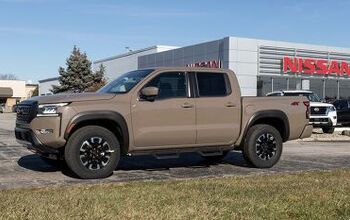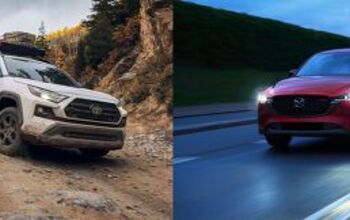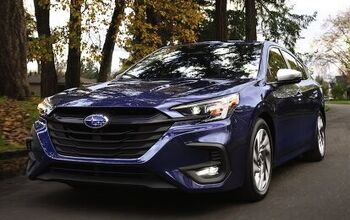U.S. Trademarks Show Hybrid, PHEV Bound for Next-gen Lexus NX

Overseas trademark applications are nice, but the significant differences between those markets and our own often make such appearances a harbinger of not much. Europe is far more likely to go green, while American buyers, depending on state, don’t see nearly as much punishment for choosing the least efficient models.
Less taxation and far cheaper fuel conspire with geographical and cultural realities to make green cars a tough sell stateside, even a decade after things really kicked off in earnest.
Which is why the recent appearance of a plug-in hybrid in trademark filings an ocean away were worthy of interest, but no guarantee of U.S. availability. Until now.
You read last week about the little NX, a competent and unexpectedly popular crossover that’s due for a full-on revamp next year. New platform and sheet metal, and new powertrains, as well. A quick trademark search last week showed entries for NX 250 and NX 350; ample evidence that Toyota might shoehorn powertrains found in the Camry into the NX’s TNGA-based successor. Add two more trademarks to the list.
As a new week dawns, NX 350h appears, signifying a hybrid variant, as well as the NX 450h+ that was the focus of last week’s Euro-centric story.
The “+” in this usage clearly points to a plug-in hybrid variant positioned atop the NX totem. Indeed, Lexus looks ready to give its U.S. lineup its first PHEV. It shouldn’t come as a surprise, what with compact crossovers proving a ripe segment for experiments in electrification. Parent corp Toyota’s RAV4 has excelled in this regard. Lexus, however, didn’t exactly set the world on fire with its first conventional hybrid vehicles: the nearly forgotten HS 250h and equally defunct CT 200h, both of which sold poorly. Perhaps they offered too little benefit for their price points; whatever the reason, the buying public wasn’t ready.
As it, along with Toyota, embarks on a concerted electrification effort, Lexus clearly sees greater promise for hybrids in its American lineup, with plug-in hybrids providing a taste of what either brand can’t yet offer: all-electric propulsion, if only for limited distances.
[Image: Chris Tonn/TTAC]

More by Steph Willems
Latest Car Reviews
Read moreLatest Product Reviews
Read moreRecent Comments
- SCE to AUX Yes, I'll miss it, and it doesn't make sense to kill off your 3rd-best seller. 2023 was its best year since 2018.
- SCE to AUX This was the same car I had (05 xB, stick, "camouflage" color) for 7 years - great car.We called ours "The Lunchbox". I added aftermarket wheels, and the 3rd-party cruise control the dealers could install.It suffered only two failures: bad window switch in week 2 (dealer fixed in 1 hour), bad trailing O2 sensor (fixed myself for $70). Fuel economy was always 28-34 mpg.It was a potential death trap, and ride quality became unbearable after 2 hours. I once did a 10-hour round trip in it and could barely walk after.Traded it for a 2012 Leaf, which was a better car in some ways.
- Bd2 The "e" nomenclature signifies the e-ATPs which BMW is pursuing.
- Dave M. I'm sorry to see any storied name go away. The lifespan of the Malibu has fit perfectly in my lifetime years-wise. Some of the highlights include the first and second generations, the '78 revamp (very clean design), and the 2005 generation. Ford, GM and Mopar gave this segment away by allowing Toyota and Honda a foot in the door and then always having to play catch-up. How hard is it to make a truly competitive sedan at a profit? Obviously, Japan Inc. figured it out.I've driven a few rentals these past years; the Malibu got the job done but honestly the Passat and Altima were my rental preferences.
- Kcflyer actually yes. It's a shame that a product this uncompetitive can still outsell GM's entire EV offerings. Those products have had billions thrown at them. Imagine how nice the new Malibu, Impala, SS, and Lacrosse would be with that kind of commitment.


































Comments
Join the conversation
NX 350h probably points to the 240-system-hp version of the Camry Hybrid powertrain that first came to our market in the new Highlander. NX 450h+ is presumably a mechanical twin of the RAV4 Prime, with 302 system hp. The first-gen NX achieved big success because it's the only vehicle in its class with a truly luxury-feeling interior and a comfortable, not stiff, ride. I really hope they don't screw that part up.
Hasn't there been enough ugly Japanese garbage made the last five years. Honduh, Lexus, and Toyoduh have shoveled enough rolling cow manure onto American highways that we should ban that infection.